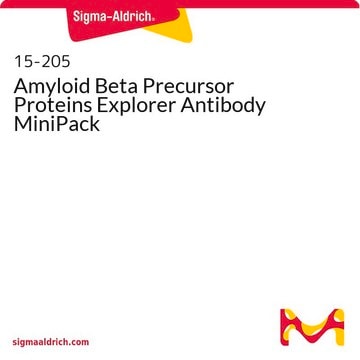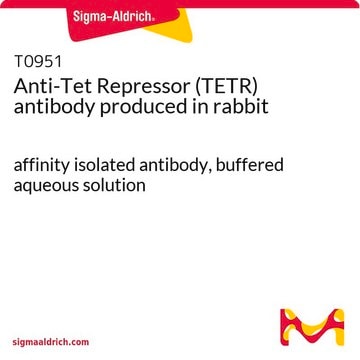15205
Blasticidine S hydrochloride
Synonym(s):
Blasticidin S
About This Item
Recommended Products
form
powder
Quality Level
color
white to off-white
solubility
acetic acid: water: soluble, clear, colorless
antibiotic activity spectrum
fungi
application(s)
agriculture
environmental
Mode of action
protein synthesis | interferes
shipped in
dry ice
storage temp.
−20°C
SMILES string
Cl[H].CN(CC[C@@H](N)CC(=O)N[C@H]1C=C[C@@H](O[C@@H]1C(O)=O)N2C=CC(N)=NC2=O)C(N)=N
InChI
1S/C17H26N8O5.ClH/c1-24(16(20)21)6-4-9(18)8-12(26)22-10-2-3-13(30-14(10)15(27)28)25-7-5-11(19)23-17(25)29;/h2-3,5,7,9-10,13-14H,4,6,8,18H2,1H3,(H3,20,21)(H,22,26)(H,27,28)(H2,19,23,29);1H/t9-,10+,13-,14+;/m1./s1
InChI key
YQXYQOXRCNEATG-ZAYJLJTISA-N
General description
Application
Biochem/physiol Actions
Packaging
Other Notes
related product
Signal Word
Danger
Hazard Statements
Precautionary Statements
Hazard Classifications
Acute Tox. 1 Oral
Storage Class Code
6.1A - Combustible acute toxic Cat. 1 and 2 / very toxic hazardous materials
WGK
WGK 2
Flash Point(F)
Not applicable
Flash Point(C)
Not applicable
Personal Protective Equipment
Certificates of Analysis (COA)
Search for Certificates of Analysis (COA) by entering the products Lot/Batch Number. Lot and Batch Numbers can be found on a product’s label following the words ‘Lot’ or ‘Batch’.
Already Own This Product?
Find documentation for the products that you have recently purchased in the Document Library.
Customers Also Viewed
Articles
Lentiviral vector systems prioritize safety features, with design precautions preventing replication. Good handling practices are essential for use.
Lentiviral vector systems prioritize safety features, with design precautions preventing replication. Good handling practices are essential for use.
Lentiviral vector systems prioritize safety features, with design precautions preventing replication. Good handling practices are essential for use.
Lentiviral vector systems prioritize safety features, with design precautions preventing replication. Good handling practices are essential for use.
Protocols
Lentivirus versions of genome modification technologies support successful CRISPR, RNAi, and ORF experiments.
Lentivirus versions of genome modification technologies support successful CRISPR, RNAi, and ORF experiments.
Lentivirus versions of genome modification technologies support successful CRISPR, RNAi, and ORF experiments.
Lentivirus versions of genome modification technologies support successful CRISPR, RNAi, and ORF experiments.
Our team of scientists has experience in all areas of research including Life Science, Material Science, Chemical Synthesis, Chromatography, Analytical and many others.
Contact Technical Service











